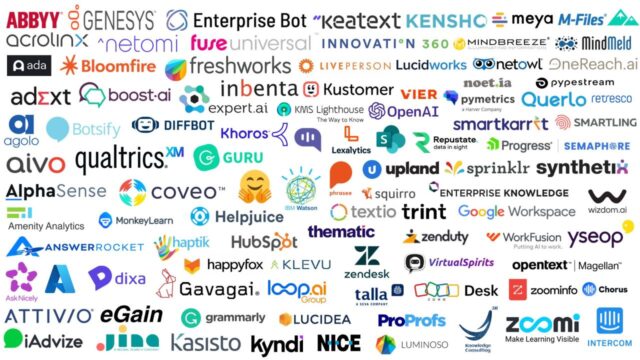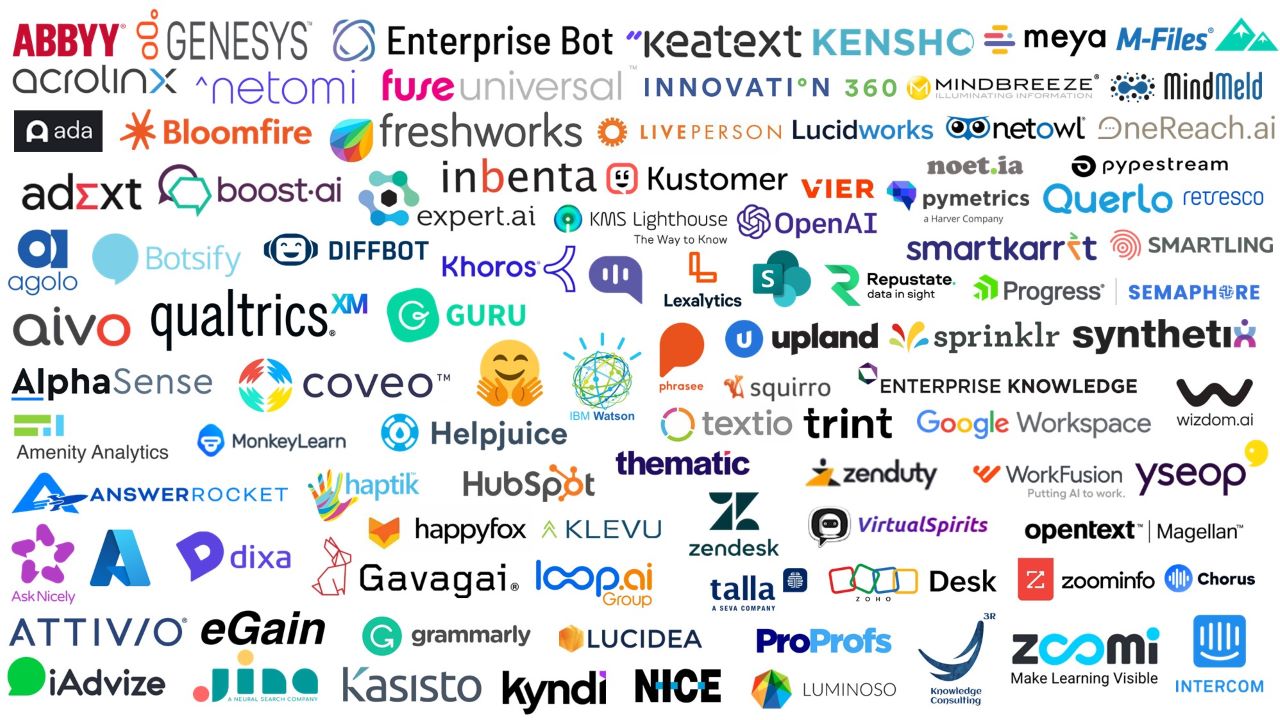
AI-based KM features for knowledge co-development and exchange [Generative AI & KM series part 3]
This article is part 3 of the series AI integration strategy for learning and knowledge management solutions.
A comparative study of 100 generative AI tools in the context of learning and knowledge management (KM) was conducted and has resulted in a set of 35 KM processes where generative AI1 has augmented their experience, implementation, and execution. This article (part 3 in the series) focuses on knowledge co-development and exchange.
Part 3. Knowledge co-development & exchange
3.1. Suggested topical communities: problem solving
With the help of generative AI, community program leaders can get suggestions for topical communities based on taxonomies, most discussed and searched topics, recurrent and related issues and/or customer most frequent incidents. Community members engage in threaded discussions with peers and collectively elaborate ideas, solutions, and propositions. Communities let users subscribe and browse content they are interested in. AI algorithms can provide user-specific content recommendations based on their search activities and subscribed to “communities” (topics of interest). Customer service teams can rely on topical communities for a quick discussion for clarity to answer customer inquiries.
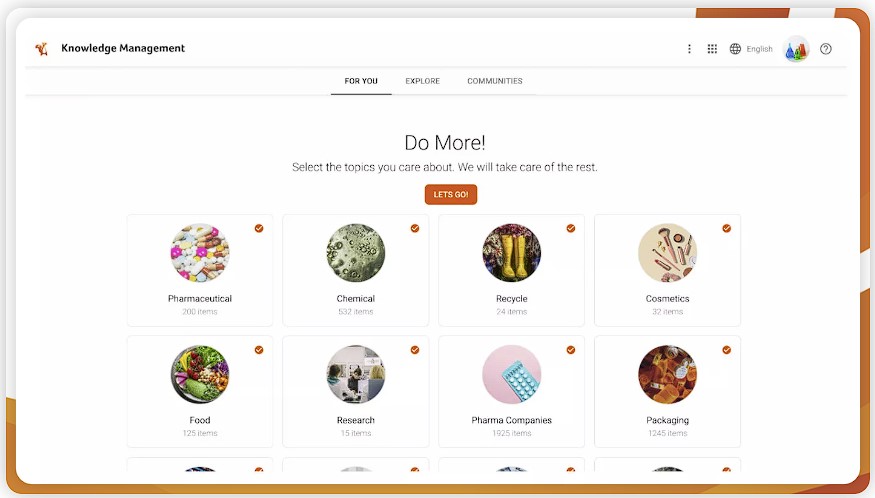
3.2. Augment knowledge sharing behaviors
With the help of generative AI, community members can share their questions, experiences within and across sister communities for additional insights. AI algorithms can identify related communities (sisters) where topics are interfaced, and members’ expertise are complementary. By tapping into the power of connectivity, communities’ members can get further answers in real-time from related community members whom they might not know but their feedback is valuable and relevant to their questions.
3.3. Digital project-based workspace
With the help of generative AI, a digital workspace can be created centralizing customer projects and data sources that can be branded for every customer. AI algorithms can automatically deliver reports based on organizational hierarchies or teams structure making progress tracking easy and shares accountability with HR and executive sponsors. Project follow up on action plan progress can also be automated for different stakeholders empowering them with actionable insights.
3.4. Knowledge narratives and storytelling
With the help of generative AI, extraction of tacit knowledge into explicit can be more streamlined with techniques such as storytelling, knowledge narratives, video interviews and dialogues. We know that intrinsic reward and a higher purpose are significantly more efficient in terms of motivating an organization and creating results. Linking a strong knowledge narrative to what you do, why you do it, and how you do it, will light a spark with your peers and boost the energy levels for engagement and collaboration.
AI algorithms can accurately predict which story will resonate the most with your target audience. AI can generate a story or knowledge narrative after being trained on guidelines, policies, a desired transformation, or organizational behaviors. AI algorithms can surface video interviews to detect key moments, uncover themes and storylines. AI can facilitate the task of creating an engaging story by reordering clip segments and combining coherent narratives that captivate the target audience. The story can be exported and shared automatically in different groups, channels, or communities.
3.5. Ideation and collaborative creativity process
With the help of generative AI, an ideation management platform running on AI-powered software that allows to collect, cluster and link ideas to strategic initiatives via mobile, desktop, and tablet. The creativity process requires collaboration internally and with external parties. It is done best through crowdsourcing. Crowdsource ideas for improvement from employees, support function inclusion or external stakeholders leading to breakthrough vetted ideas to take to development and product/ service success. Collaborate with customers in the brand communities on specific ideas to generate ideas for new products or services. Runs polls and contests to co-innovate with customers.
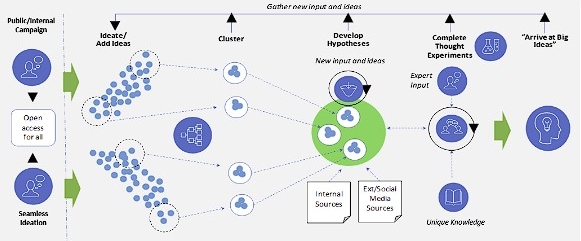
Ideation and creativity process is a non-linear process and by clustering many ideas and restating refined campaigns, you will end up at places you could never foresee from the start. To succeed with ideation, it is essential to keep idea authors engaged with feedback along the journey, regardless of what is happening with the idea. AI algorithms can help in creating, mapping, and connecting ideas, and idea authors to the campaign objectives. AI-assisted mind mapping can generate a mind map from questions asked to conversational search or can help in enriching the ideation process by suggesting related ideas, questions, topics to expand the mind map with additional branches.
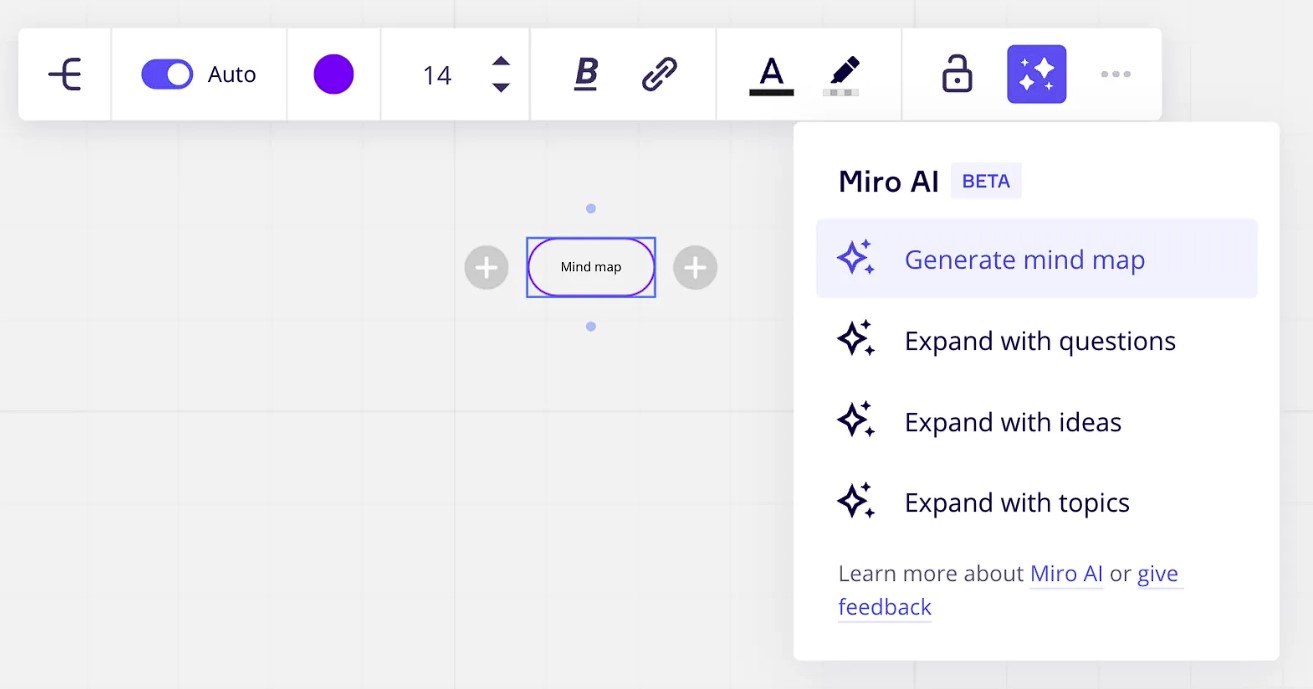
Examples of AI-based KM tools for knowledge co-development & exchange: Squirro, 3R Knowledge, Phrasee, Trint Editor, Innovation 360, Miro.
Next part (part 4): AI-based KM features for knowledge retention and reuse.
Header image source: Author provided.
Reference:
- Najjar, R. (2023, July 13). Preliminary Understanding of Generative AI: What & How? Medium. ↩




![Crowd Human Silhouettes Personal Group of People [Pixabay image 2045499]](https://realkm.com/wp-content/uploads/2018/05/crowd-2045499_640.jpg)
